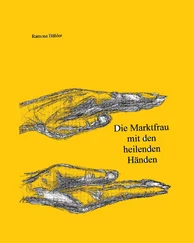Dan Singer - Start-up Nation
Здесь есть возможность читать онлайн «Dan Singer - Start-up Nation» весь текст электронной книги совершенно бесплатно (целиком полную версию без сокращений). В некоторых случаях можно слушать аудио, скачать через торрент в формате fb2 и присутствует краткое содержание. Жанр: Старинная литература, на английском языке. Описание произведения, (предисловие) а так же отзывы посетителей доступны на портале библиотеки ЛибКат.
- Название:Start-up Nation
- Автор:
- Жанр:
- Год:неизвестен
- ISBN:нет данных
- Рейтинг книги:3.5 / 5. Голосов: 2
-
Избранное:Добавить в избранное
- Отзывы:
-
Ваша оценка:
- 80
- 1
- 2
- 3
- 4
- 5
Start-up Nation: краткое содержание, описание и аннотация
Предлагаем к чтению аннотацию, описание, краткое содержание или предисловие (зависит от того, что написал сам автор книги «Start-up Nation»). Если вы не нашли необходимую информацию о книге — напишите в комментариях, мы постараемся отыскать её.
Start-up Nation — читать онлайн бесплатно полную книгу (весь текст) целиком
Ниже представлен текст книги, разбитый по страницам. Система сохранения места последней прочитанной страницы, позволяет с удобством читать онлайн бесплатно книгу «Start-up Nation», без необходимости каждый раз заново искать на чём Вы остановились. Поставьте закладку, и сможете в любой момент перейти на страницу, на которой закончили чтение.
Интервал:
Закладка:
Medved then hints to the multinationals in the room that they are likely to be missing something if they have not already set up shop in Israel. He finds out in advance of each presentation which companies’ executives will be in the audience and is then certain to mention which of their competitors are already in Israel. “The reason that Israel is inside almost everything we touch is because almost every company we touch is inside Israel. Are you?” he asks, peering into the audience.
Medved has taken on a role that, in any other country, would typically belong to the local chamber of commerce, minister of trade, or foreign secretary.
But the start-ups Medved champions in his presentations are rarely companies in which he has invested. He’s always torn when he prepares for these speeches: “Do I talk up Vringo among the promising new companies coming out of Israel? It’s a no-brainer, right? It’s good exposure for the company.” But he resists the urge. “My pitch is about Israel. My American investors beat me up over this—‘You wind up plugging your competitors but not your own company.’ They’re right. But they’re missing the larger point.”
Medved is in perpetual motion. He’s given the presentation fifty times a year for the last fifteen years. All told, almost eight hundred times, at technology conferences and universities around the world, in over forty countries, and to scores of international dignitaries visiting Israel.
Alex Vieux, CEO of Red Herring magazine, told us that he has been to “a million high-tech conferences, on multiple continents. I see Israelis like Medved give presentations all the time, alongside their peers from other countries. The others are always making a pitch for their specific company. The Israelis are always making a pitch for Israel.” 9
CHAPTER 4
Harvard, Princeton, and Yale
The social graph is very simple here. Everybody knows everybody.
—YOSSI VARDI
DAVID AMIR MET US AT HIS JERUSALEM HOME in his pilot’s uniform, but there was nothing Top Gun about him. Soft-spoken, thoughtful, and self-deprecating, he looked, even in uniform, more like an American liberal arts student than the typical pilot with crisp military bearing. Yet as he explained with pride how the Israeli Air Force trained some of the best pilots in the world—according to numerous international competitions as well as their record in battle—it became easy to see how he fit in. 1
While students in other countries are preoccupied with deciding which college to attend, Israelis are weighing the merits of different military units. And just as students elsewhere are thinking about what they need to do to get into the best schools, many Israelis are positioning themselves to be recruited by the IDF’s elite units.
Amir decided when he was just twelve years old that he wanted to learn Arabic, partly because he knew even then that it might help him get accepted into the best intelligence units.
But the pressure to get into those units really intensifies when Israelis are seventeen years old. Every year, the buzz builds among high school junior and senior classes all across Israel. Who has been asked to try out for the pilot’s course? Who for the different sayarot , the commando units of the navy, the paratroopers, the infantry brigades, and, most selective of all, the Sayeret Matkal, the chief of staff’s commando unit?
And which students will be asked to try out for the elite intelligence units, such as 8200, where Shvat Shaked and his cofounder of Fraud Sciences served? Who will go to Mamram, the IDF’s computer systems division? And who will be considered for Talpiot, a unit that combines technological training with exposure to all the top commando units’ operations?
In Israel, about one year before reaching draft age, all seventeen-year-old males and females are called to report to IDF recruiting centers for an initial one-day screening that includes aptitude and psychological exams, interviews, and a medical evaluation. At the end of the day, a health and psychometric classification is determined and service possibilities are presented to the young candidate in a personal interview. Candidates who meet the health, aptitude, and personality requirements are offered an opportunity to take additional qualifying tests for service in one of the IDF’s elite units or divisions.
Tests for the paratrooper brigade, for example, occur three times each year, often months before candidates’ scheduled draft dates. Young civilians submit themselves to a rigorous two days of physical and mental testing, where an initial group of about four thousand candidates is winnowed down to four hundred future draftees for different units. These four hundred paratroopers can volunteer to participate in the field test and screening process for the special forces, which is an intensive five-day series of eleven repeating drills, each lasting several hours and always conducted under severe time constraints and increasing physical and mental pressure. During the entire time, rest periods are short and sleep almost nonexistent, as is food and the time in which to eat it. Participants describe the five days as one long blur where day and night are indistinguishable. No watches or cell phones are allowed—the screeners want to make the experience as disorienting as possible. At the end of the five days, each soldier is ranked.
The twenty top-ranking soldiers for each unit immediately begin the twenty-month training period. Those who complete the training together remain as a team throughout their regular and reserve service. Their unit becomes a second family. They remain in the reserves until they are in their mid-forties.
While it’s difficult to get into the top Israeli universities, the nation’s equivalent of Harvard, Princeton, and Yale are the IDF’s elite units. The unit in which an applicant served tells prospective employers what kind of selection process he or she navigated, and what skills and relevant experience he or she may already possess.
“In Israel, one’s academic past is somehow less important than the military past. One of the questions asked in every job interview is, Where did you serve in the army?” says Gil Kerbs, an intelligence unit alumnus who—after pursuing the Book—today works in Israel’s venture capital industry, specializing in China’s technology market. “There are job offers on the Internet and want ads that specifically say ‘meant for 8200 alumni.’ The 8200 alumni association now has a national reunion. But instead of using the time together to reflect on past battles and military nostalgia, it is forward-looking. The alumni are focused on business networking. Successful 8200 entrepreneurs give presentations at the reunion about their companies and industries.” 2
As we’ve seen, the air force and Israel’s elite commando units are well known for their selectivity, the sophistication and difficulty of their training, and the quality of their alumni. But the IDF has a unit that takes the process of extreme selectivity and extensive training to an even higher level, especially in the realm of technological innovation. That unit is Talpiot.
The name Talpiot comes from a verse in the Bible’s Song of Songs that refers to a castle’s turrets; the term connotes the pinnacle of achievement. Talpiot has the distinction of being both the most selective unit and the one that subjects its soldiers to the longest training course in the IDF—forty-one months, which is longer than the entire service of most soldiers. Those who enter the program sign on for an extra six years in the military, so their minimum service is a total of nine years.
The program was the brainchild of Felix Dothan and Shaul Yatziv, both Hebrew University scientists. They came up with the idea following the debacle of the 1973 Yom Kippur War. At that time, the country was still reeling from being caught flat-footed by a surprise attack, and from the casualties it had suffered. The war was a costly reminder that Israel must compensate for its small size and population by maintaining a qualitative and technological edge. The professors approached then IDF chief of staff Rafael “Raful” Eitan with a simple idea: take a handful of Israel’s most talented young people and give them the most intensive technology training that the universities and the military had to offer.
Читать дальшеИнтервал:
Закладка:
Похожие книги на «Start-up Nation»
Представляем Вашему вниманию похожие книги на «Start-up Nation» списком для выбора. Мы отобрали схожую по названию и смыслу литературу в надежде предоставить читателям больше вариантов отыскать новые, интересные, ещё непрочитанные произведения.
Обсуждение, отзывы о книге «Start-up Nation» и просто собственные мнения читателей. Оставьте ваши комментарии, напишите, что Вы думаете о произведении, его смысле или главных героях. Укажите что конкретно понравилось, а что нет, и почему Вы так считаете.












